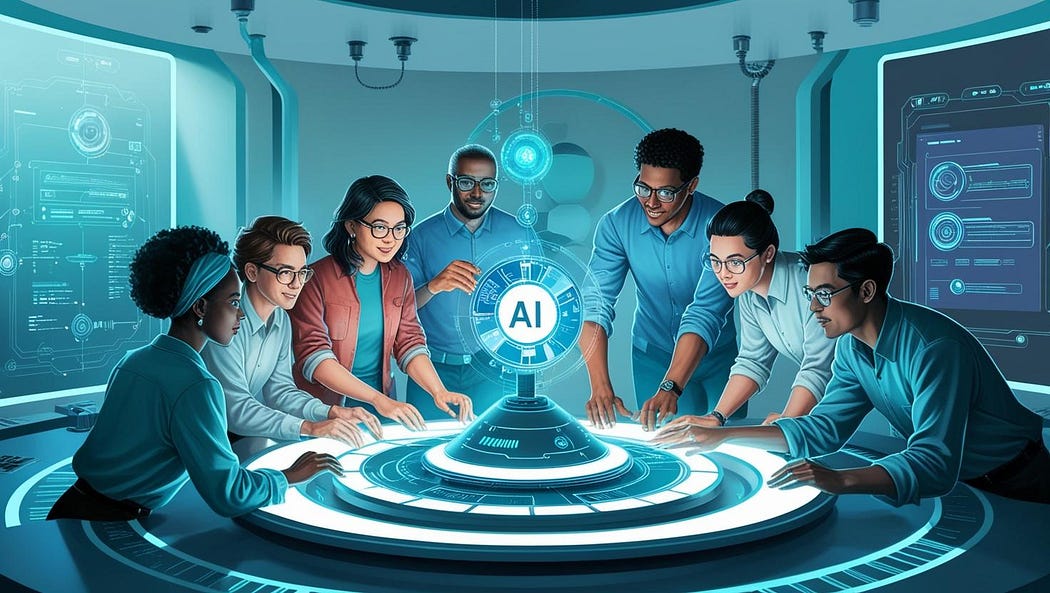Technology Trends to watch in 2025
Top Technology Trends You Should Know About in 2025
Welcome to our deep dive into the top technology trends set to define 2025. With over 15 years of experience as a software agency, we’ve compiled insights from experts like Maria Kucharczyk and Michał Matłoka to help you navigate the evolving tech landscape. Here’s what you need to know to stay ahead.
- Security-First and Security-Left Strategies

Cybersecurity is no longer optional—it's foundational. In 2025, proactive measures like continuous security testing, vulnerability audits, and organization-wide training will distinguish leaders from laggards. Compliance alone won’t suffice; companies need a security-first culture, integrating threat detection early in the development process.
The rise of quantum computing has escalated the stakes. Recent breakthroughs, such as Chinese researchers cracking RSA encryption, highlight the urgent need for quantum-resistant protocols. Prepare for these challenges by embedding SecOps practices and aligning cybersecurity frameworks with cutting-edge advancements.
2. AI Development and Human-AI Collaboration

Artificial Intelligence is a double-edged sword in cybersecurity and beyond. In 2025, AI will:
Enhance phishing attacks with personalized content.
Generate lifelike deepfakes for social engineering.
Deploy adaptive malware that evolves in real time.
But AI is also a powerful ally, enabling automated threat detection, incident response, and predictive analytics. The evolution of large language models (LLMs) will also drive advancements in healthcare, with avatars and other tools exemplifying human-AI collaboration.
Despite the hype, AI’s real-world applications are maturing rather than revolutionizing industries. Tools like Microsoft Copilot and AI-native IDEs are empowering developers and accelerating the no-code/low-code movement, allowing non-programmers to build functional applications.
3. FinOps: Financial Efficiency in the Cloud Era

Economic uncertainty has made cloud cost optimization a top priority. Enter FinOps, a financial operations approach to managing cloud costs effectively. As companies prepare for IPOs and seek to maximize profitability, FinOps practices will help achieve cost savings while maintaining operational efficiency.
4. Legacy Modernization: A Necessity, Not a Choice
Modernizing legacy systems is no longer a back-burner issue. To stay competitive, companies are revisiting outdated architectures to enhance security, reduce costs, and improve the developer experience. Languages like Rust, known for its efficiency and safety, are gaining traction as modernization efforts pick up pace.
AI is playing a pivotal role in modernization by simplifying dependency upgrades and enabling regression testing. However, privacy concerns remain a barrier to widespread adoption of AI-powered tools for legacy codebases.
5. Rust: The Language of the Future
Celebrating its 10th anniversary, Rust continues to be the most admired programming language, according to the Stack Overflow Developer Survey. Its focus on safety, performance, and developer-friendly features makes it ideal for modern greenfield projects.
Rust’s growing community is fueled by events like Rustikon, a new conference dedicated to advancing this transformative language. Expect to see increased adoption of Rust in real-world applications in 2025.
6. Remote Work and the Debate Over Office Returns
The post-pandemic era has seen a tug-of-war between remote work and in-office mandates. While companies like Amazon and Disney are pushing for hybrid or full-time office work, others, like Spotify, champion remote-first policies. The debate is fueled by contrasting research:
McKinsey: 87% of employees prefer remote options.
Harvard Business Review: Forced office returns correlate with higher stress and turnover.
Microsoft: 82% of managers report equal or better remote team performance.
Flexibility is emerging as the ideal middle ground. Hybrid policies can maximize employee satisfaction while retaining in-office collaboration benefits, but they require careful planning to avoid logistical pitfalls.
7. The Role of AI in Everyday Work
AI integration is reshaping how developers and businesses approach tasks. From writing code with natural language to creating no-code solutions, tools like ChatGPT and Cursor IDE are democratizing software development. While 2025 may not bring an AI revolution, expect steady evolution in its practical applications.
Wrap-Up: Preparing for 2025
From proactive cybersecurity measures to leveraging AI and modernizing legacy systems, 2025 is about adaptability and strategic investment. Embrace these trends to position your organization for long-term success. Continuous learning and collaboration will be key as the tech landscape continues to evolve.
